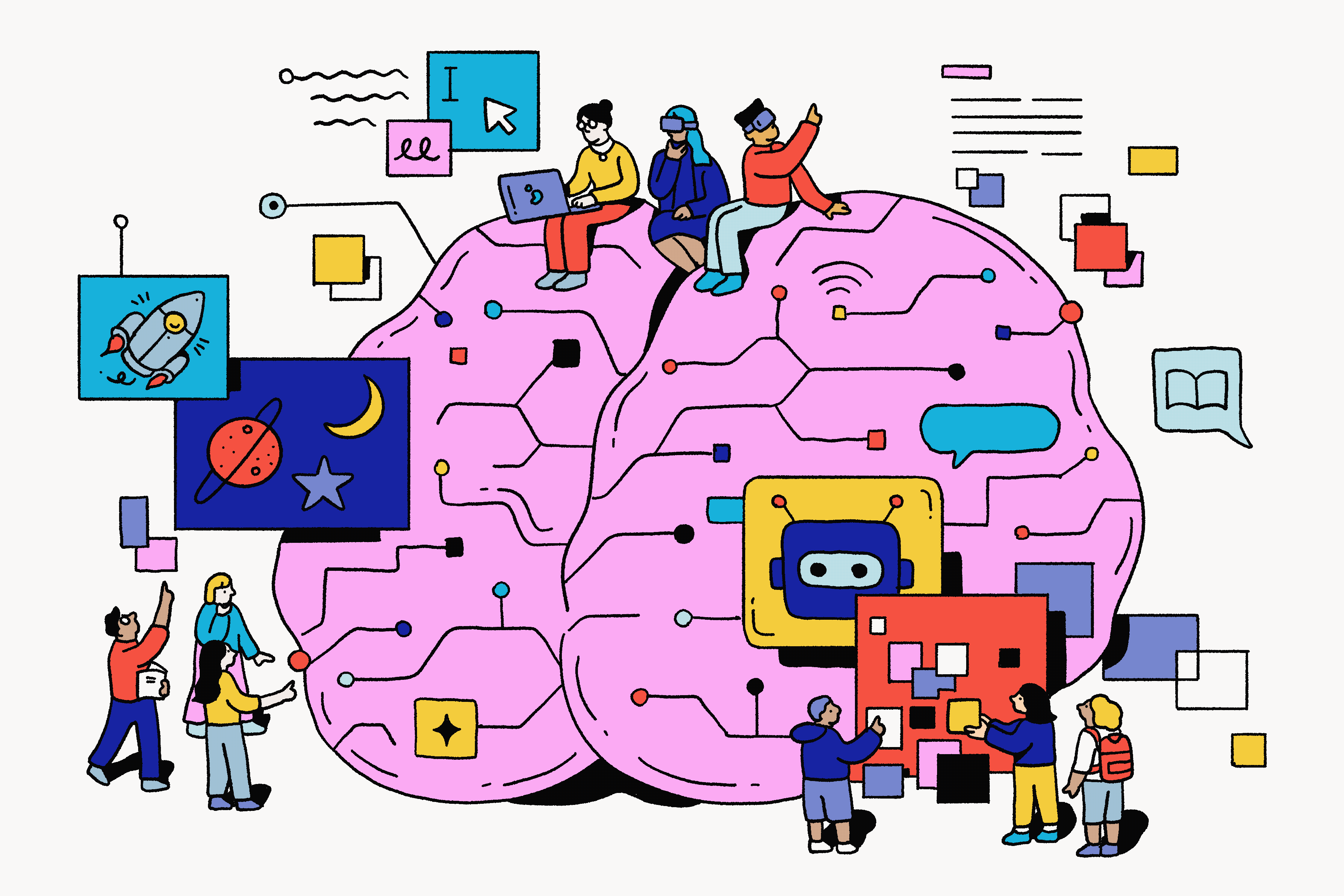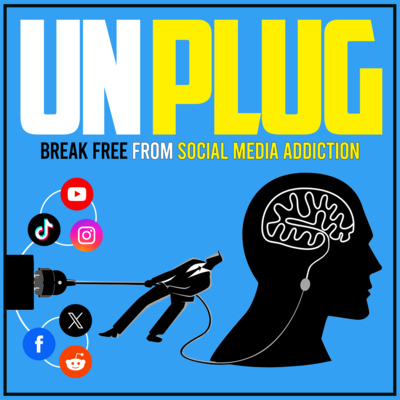Imagine having a toolbox filled with skills that prepare you for the future. It’s not just about learning to code anymore.
As a teen, your world is rich with opportunities to explore Essential Tech Skills Every Teen Should Learn that go beyond the basics. Whether it’s understanding digital communication, mastering data analysis, or navigating cybersecurity, these skills can set you apart in a rapidly changing world.
Picture yourself confidently stepping into any career or field, armed with a diverse set of abilities that make you adaptable and resilient. Curious about what these skills are and how they can benefit you? Dive into this article to discover the essential tech skills that will empower you and ensure you’re always ready for what the future holds.
Digital Literacy
Teens need more than coding skills to succeed in the digital world. Understanding online safety, digital communication, and data privacy is crucial. Learning how to use digital tools effectively will prepare them for future challenges.
Digital Literacy: A Critical Skill for Teens In today’s digital age, being tech-savvy is about more than just knowing how to code. Digital literacy equips teens with the skills needed to navigate and succeed in a world dominated by technology. It’s about understanding how digital platforms work and being able to evaluate online information critically. These skills are essential for staying informed and making smart decisions in an ever-changing digital landscape.
Understanding Digital Platforms
Digital platforms are everywhere, from social media to online learning tools. Teens who understand how these platforms work can harness their power effectively. Think about Instagram, TikTok, or Google Classroom. Knowing how to use these platforms responsibly can open doors to learning, creativity, and even career opportunities. It’s not just about scrolling or posting; it’s about engaging with content thoughtfully. Have you ever wondered how algorithms decide what content you see? Being aware of these mechanisms can help you control your digital experience, ensuring you’re not just a passive consumer but an active participant in the digital world.
Evaluating Online Information
The internet is an ocean of information. But not all of it is reliable. Teens must learn to evaluate the credibility of online sources. This means questioning the authenticity of what you read and looking for evidence to back up claims. Imagine coming across a news article on social media. Before you share or act on it, ask yourself: Who wrote this? Is this a reputable source? Are there multiple sources confirming this information? By developing these critical thinking skills, you can avoid misinformation and make informed decisions. This ability is not just valuable for school projects but also essential for navigating the world as a responsible digital citizen.
Digital literacy is more than a skill; it’s a survival tool. By understanding digital platforms and evaluating online information, teens can prepare themselves for the future, ensuring they’re not just keeping up but leading the way. So, what steps will you take today to enhance your digital literacy?
Cybersecurity Awareness
Teens should explore tech skills beyond coding for future readiness. Understanding cybersecurity is crucial. Basic knowledge of online safety, digital privacy, and threat identification can protect against cyber threats. Learning these skills early prepares teens for a tech-driven world.
Cybersecurity is a crucial skill every teen should learn to stay future-proof in our digital world. It’s not just about coding; it’s about understanding how to protect yourself online. With the rise of cyber threats, being aware of cybersecurity can save you from potential risks and losses.
Recognizing Threats
Imagine receiving an email that looks just like one from your bank, asking you to confirm your account details. Would you know what to do? Recognizing threats such as phishing emails, malware, and fake websites is essential. You can protect yourself by examining URLs, checking for spelling errors, and questioning unexpected requests for personal information. Understanding these threats can help you make safer choices online. Think about a time when you clicked a suspicious link and your heart dropped as you realized it might have been a scam. Learning from these experiences builds your awareness and sharpens your instincts.
Protecting Personal Data
Your personal data is like your digital fingerprint. How often do you share your birthday, address, or even photos online without a second thought? It’s important to be cautious about what you share and where you share it. Use strong, unique passwords for each of your accounts to guard against hackers. Consider enabling two-factor authentication for an extra layer of security. Ask yourself: Is it worth risking my personal data for the convenience of using the same password everywhere? Keeping your software updated also helps in protecting your personal data. Updates often include fixes for security vulnerabilities. Make it a habit to check for updates regularly. By staying vigilant and proactive, you can safeguard your online presence. How can you implement these practices in your daily digital interactions? Start today and take control of your cybersecurity awareness.
Design Thinking
Design Thinking teaches teens vital skills beyond coding. It nurtures creativity, problem-solving, and empathy. These abilities prepare them for future challenges, making them adaptable and innovative thinkers in any field.
In today’s rapidly evolving world, mastering tech skills is essential, but it’s not just about coding. One crucial area that teens should focus on is Design Thinking. This approach equips you with the ability to tackle complex problems creatively and innovatively. It’s a mindset that encourages you to see challenges as opportunities for growth. Design Thinking is about understanding the needs of users, brainstorming ideas, and testing solutions. It’s a skill that goes beyond the digital world and can be applied to any field.
Problem-solving Techniques
Design Thinking starts with understanding problems deeply. Instead of jumping to conclusions, take a step back. Ask yourself: what is the real issue here? Engage in techniques like empathy mapping or user interviews. These methods help you gain insights from different perspectives. By honing your problem-solving skills, you become adept at identifying the root cause of issues. This makes your solutions more effective and lasting.
Creative Solutions
Design Thinking encourages you to think outside the box. When was the last time you came up with a solution that surprised even you? Brainstorming sessions are a core part of this process. They allow you to generate a multitude of ideas without judgment. Remember, the first idea isn’t always the best. Iteration is key. Test your ideas, gather feedback, and refine your approach. This cycle of creativity and feedback leads to innovative solutions. Consider a school project where you had to devise a unique presentation. Using Design Thinking, you might have identified what truly engaged your audience, leading to a more captivating delivery. How can you apply this to real-world problems? By embracing Design Thinking, you not only solve problems effectively but also enhance your ability to innovate, a skill that’s indispensable for the future.

Credit: www.facebook.com
Data Analysis
Teens should learn data analysis to prepare for the future. This skill helps make sense of numbers and trends. Understanding data is essential, not just coding.
Data Analysis is a vital skill that goes beyond just crunching numbers—it’s about understanding what those numbers tell us. As a teen, learning to analyze data equips you with the ability to make informed decisions, spot trends, and predict future outcomes. Whether you’re exploring social media metrics or school project statistics, data analysis helps you connect the dots and see the bigger picture.
Collecting Data
Collecting data is the first step in data analysis. It’s like gathering puzzle pieces before putting them together. You can collect data from surveys, online platforms, or even your daily observations. Think about the last time you gathered information from your friends for a school project. Did you consider how you could use that data to draw conclusions? The ability to collect relevant and accurate data is crucial in shaping your analysis.
Interpreting Results
Once you have the data, interpreting results is where the magic happens. It’s not just about reading numbers—it’s about understanding what they mean. Look for patterns, relationships, and insights that can guide your decisions. Remember the surprise you felt when you noticed a trend in your social media likes? That’s interpreting results. Ask yourself: What story does the data tell? How can it influence my next steps? This skill can help you become more analytical and make better choices in life. Data analysis isn’t just for tech giants or scientists. It’s for anyone who wants to make sense of the world. Are you ready to harness the power of data and pave your path to a future-proof career?
Digital Communication
In today’s digital age, communication skills are crucial. Teens must learn effective digital communication to thrive. It’s not just about sending messages. It’s about how we convey our thoughts online. This skill is as important as coding. It ensures our ideas are clear and respectful. Mastering digital communication helps in personal and professional growth.
Effective Online Communication
Effective online communication involves clarity and precision. Use simple words and short sentences. This ensures your message is understood by all. Misunderstandings can occur with vague language. So, be clear and concise. Practice makes perfect. Regularly engage in online discussions to improve. This skill is essential in today’s tech-driven world.
Digital Etiquette
Digital etiquette is about respect and consideration. Always think before you post. Your online behavior reflects your character. Be mindful of others’ feelings. Avoid offensive language or tone. Respect privacy. Don’t share others’ personal information without consent. Good digital etiquette builds trust and positive relationships online.

Credit: www.edweek.org
Project Management
Teens should learn tech skills beyond coding for future success. Skills like data analysis, cybersecurity, and project management are crucial. These skills help in navigating technology-driven workplaces effectively.
Project management is a crucial skill that goes beyond the realm of coding and technology. It’s a discipline that helps transform ideas into reality, ensuring that projects are delivered on time and within scope. As a teenager, learning project management can empower you to effectively organize tasks, collaborate with others, and achieve goals in both academic and personal projects. This skill is invaluable, whether you’re coordinating a school event or launching a startup.
Planning And Execution
Planning is the first step in any successful project. It’s like creating a roadmap that guides you from start to finish. Start by identifying your project goals and breaking them down into smaller, manageable tasks. Use tools like Trello or Asana to keep track of these tasks and deadlines. Execution is where you turn your plans into action. Stick to your schedule and adjust as needed. It’s important to be flexible, as unexpected challenges often arise. Learn to prioritize tasks that are critical to your project’s success. Remember, a well-executed plan can make the difference between success and failure.
Team Collaboration
No project is an island. Working effectively with a team is essential for successful project management. Communication is key—ensure everyone is on the same page and understands their roles. Regular check-ins can help track progress and resolve any issues. Leverage collaboration tools like Slack or Microsoft Teams to keep everyone connected. Encourage open dialogue and feedback within your team. When I organized a school fundraiser, our team’s ability to communicate openly allowed us to troubleshoot problems quickly and stay on track. Could your next project benefit from better team collaboration?
Artificial Intelligence Basics
Artificial Intelligence (AI) is shaping the world around us. From smart assistants to predictive analytics, AI influences many areas. Teens today can benefit from understanding AI. Learning AI basics equips them for future opportunities. It’s not all about coding. Grasping AI concepts and ethics is crucial too.
Understanding Ai Concepts
AI mimics human intelligence in machines. It involves learning, reasoning, and self-correction. Machine learning is a key part of AI. It allows computers to learn from data. AI can recognize patterns and make decisions. Robots and smart devices use AI to function. Understanding these concepts is important for teens.
Ethical Considerations
AI raises important ethical questions. Privacy is a major concern with AI. Personal data should be protected. AI can also lead to job displacement. Teens should think about these impacts. Fairness and transparency in AI are crucial. Understanding these ethical points prepares teens for the future.

Credit: www.edweek.org
Digital Creativity
Digital creativity is a vital skill in today’s tech-driven world. It goes beyond coding. It involves designing, creating, and innovating. Teens can express themselves and solve problems creatively. Digital creativity opens many doors. It encompasses multimedia tools and content creation. Both are essential for future success.
Multimedia Tools
Multimedia tools are crucial for digital projects. They help create videos, graphics, and animations. Teens should learn to use these tools effectively. Popular tools include Adobe Creative Suite and Canva. These tools enhance visual storytelling. They allow users to design with ease. Understanding multimedia tools boosts creativity. It also improves project presentation.
Creative Content Creation
Creating content is more than just posting online. It’s about sharing ideas in unique ways. Teens should learn to write blogs, produce podcasts, and make videos. These activities enhance communication skills. They also build an online presence. Creative content creation encourages critical thinking. It helps in problem-solving and idea generation.
Networking Skills
In today’s fast-paced digital world, networking skills are essential for teens who want to be future-proof. It’s not just about coding; it’s about building a web of professional connections that can open doors to opportunities. As you navigate your way into adulthood, knowing how to connect with people and leverage social media can set you apart. Networking is more than just exchanging business cards. It’s about establishing meaningful relationships that can help you in your career and personal growth. Let’s dive into how you can master these skills.
Building Professional Connections
Imagine attending a tech conference where you meet someone who shares your interests. You engage in a conversation about the latest innovations and exchange contact details. You’ve just taken the first step in building a professional connection.
Reach out to mentors, join clubs, and attend workshops. These are practical ways to expand your network. Don’t be afraid to ask questions and share your thoughts.
Think about your future goals. Who can help you get there? Identify key figures in your desired industry and connect with them. It’s all about mutual growth and learning from each other.
Leveraging Social Media
Social media platforms like LinkedIn are powerful tools for networking. Create a professional profile showcasing your skills and achievements. Engage with posts and join relevant groups.
Use Twitter to follow industry leaders. Participate in discussions and share insightful content. It’s a way to show your expertise and stay updated.
Be mindful of your online presence. Remember, what you post can impact your reputation. Use social media wisely to build a positive and professional image.
As you think about your networking skills, ask yourself: Are you actively connecting with people who can help you grow? Are you using social media effectively to enhance your professional image?
Networking is not just a skill; it’s a strategy for success. By building connections and leveraging social media, you’re setting the stage for a bright future.
Frequently Asked Questions
What Tech Skills Are Essential For Teens?
Teens should learn problem-solving, data analysis, and digital literacy. These skills enhance adaptability in tech-driven environments. Understanding cybersecurity basics and cloud computing can also be invaluable. Non-coding skills like digital content creation and virtual collaboration are increasingly important, offering diverse opportunities beyond traditional coding roles.
Why Is Digital Literacy Important For Teens?
Digital literacy helps teens navigate online platforms safely and efficiently. It empowers them to evaluate information critically, communicate effectively, and create content responsibly. Being digitally literate ensures they can adapt to technological changes. This skill is crucial for both personal growth and professional success in a digital world.
How Can Problem-solving Skills Benefit Teens?
Problem-solving skills enable teens to tackle complex challenges creatively. They foster critical thinking, helping teens devise innovative solutions. These skills are essential for thriving in tech careers. Learning to approach problems methodically prepares teens for future scenarios, ensuring they remain adaptable and resourceful in any field.
Are Non-coding Skills Valuable For Future Careers?
Absolutely, non-coding skills like digital marketing and UX design are in high demand. They offer diverse career opportunities in tech and beyond. Mastering these skills can lead to roles in project management, content creation, and data analysis. They complement coding skills, ensuring a well-rounded professional profile.
Conclusion
Teens today face a fast-changing world. Tech skills are essential for success. Coding is important, but it’s not everything. Digital literacy opens doors to many opportunities. Learning cybersecurity keeps online data safe. Understanding AI boosts problem-solving skills. Knowing basic design helps in creating engaging content.
Embrace these skills for a future ready path. Start small, aim high, and keep learning. Technology evolves, and so should your skills. Preparing now builds a strong foundation. Ready for tomorrow’s challenges. Stay curious, stay informed, and thrive in the digital age.



